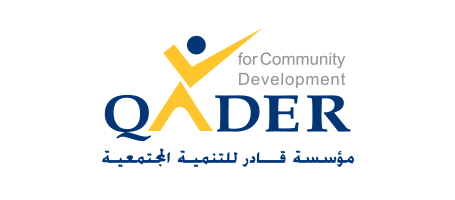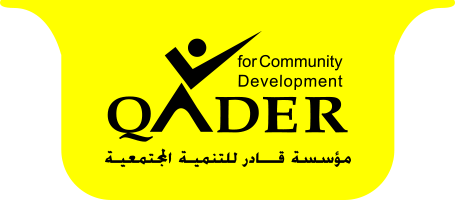QADER Provides an In-depth Analysis of the Ministry of Social Development's Budget

QADER for Community Development held a workshop in Ramallah to present and discuss their analysis of the Ministry of Social Development's budget from a disability development prespective.
Many prominent Palestinian figures attended the workshop such as the Deputy Minister of the Ministry of Social Development, Mr. Dawood Al-Deek, as well as representatives of the Palestinian Union of People with Disabilities, the Palestinian Disability Coalition, and a number of local and international organizations that support people with disabilities and advocate for their rights.
Mrs. Lana Bandak, Director General of QADER for Community Development, started the workshop by welcoming the attendees and stressing the importance of this analysis in clarifying the compatibility of the Ministry of Social Development's program budget for the years 2017-2018, the Social Development Sector Strategy 2017-2022, and with the National Policy Agenda 2017-2022.
Deputy Minister Al-Deek, indicated that the Ministry of Social Development is open to institutional dialogue, and that they are always working to fill the gap between planning and budgets.
He also stated that they are working hard to make their budgets flexible and responsive to the rights and needs of the poor and marginalized, foremost of whom are people with disabilities.
Researcher Muayad Afaneh presented the report and highlighted the most important aspects of the Ministry of Social Development’s budget.
Afaneh also presented the methodology used in preparing this analysis, the sources of data collection and interviews, and the objectives of the in-depth analysis, especially in how it answers several questions related to the size of the allocations earmarked for facilities and programmes for people with disabilities compared to the actual amount spent by the ministry.
In addition, Afaneh clarified to which extent these programmes are in line with the National Policy Agenda and with Palestinian and international laws that are related to the rights and needs of people with disabilities. At the end, he shed the light on the most important conclusions, recommendations, and lessons learned from the analyses and reviews of this report.
Following the presentation there was an open discussion for the purpose of collecting the largest amount of qualitative observations and additions from the attendees, which will enrich the report before revising, amending and adopting the final version.
At the end of the workshop, many participants pointed out the importance of considering the development perspective in this analysis and linking it to both the National Policy Agenda and to the human rights approach for people with disabilities (supported by the International Convention on the Rights of People with Disabilities and Palestinian Law No. 4 of 1999).

